Yup, I got an unannounced price increase from them around the same time too. I called and asked if they'd reverse it. I didn't cite any laws, I just said I'd take my business elsewhere quicksmart if they didn't. They didn't. I canceled my service 2 months later. I now pay $81.31/mo for both home internet and cell phone, without a contract. So it worked out in the end. FWIW, Virgin (Bell) increased my price twice and at least once (but I think twice, iirc) they didn't tell me in advance. (They were my old home internet :)
I wasn't sure what residential school denialism meant in terms of proposed criminal definition, but I found the article below helpful. I wasn't aware of this level of idiocy in Canada, this residential school denialism. It's very MAGA-esque. Tl;dr: clearly hate speech.
(I added the bold)
Civil society, human rights groups, and faculty associations broadly oppose the International Holocaust Remembrance Alliance working definition of antisemitism (known as “IHRA”) because it purposefully conflates criticism of Israeli policy with antisemitism and is frequently deployed by supporters of Israel to unfairly shut down Palestinians perspectives.
All across the country our political leaders are getting behind coercive intervention
Has Singh called for this? Trudeau? Nah, this is a right-wing "blame, project, dehumanize, and profiteer off of victims" initiative.
Involuntary treatment (of already marginalized people) in for-profit 'health care centres,' backed by venture capitalists. This is some dystopian AF shit
Have you considered immigrating to occupied Palestine then? Useful reminder, since you seem confused: anti-genocide ≠ anti-semitism
You're not allowed to say that without prefacing it with "scientists suspect" or something similar /s
Owl's facial expression reminds me of Miss Piggy's (of the Muppets) self-contented look :)
It didn't feel by design to me. Raps felt overmatched without Scottie, who left due to injury
Would you be that bold in a parallel universe where the acronym was LBT+? I'm taking the piss. I appreciate hearing your perspective
Is that a belief you have as a self-identifying member of the LGBT+ community yourself?
I just checked 338 and the NDP having a 1% lead in popular vote equated to a 50-50 chance of winning the most seats. C'mon! Orange crush, babyyyy!
https://338canada.com/saskatchewan/
This one has already stuck for a while, and it works. It is quite inclusive, whereas LGBT was less so. It would go against the principle of an inclusive acronym for "+" to stand in for many not explicitly recognized groups.
I note you're not a .ca user. Idk if you're Canadian or not, or it this is what's driving your comment, but 2S refers to an Indigenous identity of Two-Spirited. It's a local variation of the acronym, reflecting local culture. If you're not in Canada/US/Turtle Island, it's unlikely you'll see 2S in your local version
Me: 'Nother hit off the bong, Viscacha?
Viscacha (sleepily): nah, I'm good
I think Muncy would be a great name for a cat
A nip is basically a warning bite versus a real "fuck off" bite
- Cavaliers finish top 4
- Magic finish top 4
- Grizzlies finish top 4
- Clippers don't make the playoffs
I'd like to take this moment to congratulate the Raptors on their uniquely purple court. Raptors fans are going to have to try to find wins this season wherever we can 😅
That top left is TWolves. Not pretty
I don't know anything about Samidoun but events over the last year sure have made an impression on me. Among Western governments and legacy media, the criminalization of people and ideas opposing the Palestinian genocide is the most Orwellian thing I have noticed in my relatively young and privileged life.
Samidoun describes themselves as a Palestinian prisoners' rights organization. The opening words of NatPo's article describes them as: "Samidoun, the anti-Israel advocacy group based in Vancouver." Switch this to any other issue or identity and that level of editorial rebranding would be almost unthinkable, and probably legally actionable.
I can't say I disagree with this
“The Liberals cannot legislate away our right to free speech. If they contend we are terrorists, let them prove it in court,” said Charlotte Kates, one of Samidoun’s founding members, in a statement.

https://kolektiva.social/@BigJesusTrashcan/113353713847956231
"Act like you've been there before" is a cliché I've heard that means to behave in a situation that is new and exciting to you as if it is something old and familiar to you instead.
As a closeted transfeminine person, I'm thinking about painting my fingernails black - wearing coloured polish in public would be a first for me. And I'm thinking of getting them done at a salon - another first.
I'm so nervous but excited. I know from experience of rocking neutral or clear polish as a cis-looking AMAB person that being super nonchalant about having painted nails in public will lead to me having a better time, which is ironic because rocking painted fingernails in public is like bucket list-level excitement for me. But to assuage my high levels of social anxiety and increase my odds of having a good time, I know I ought to be nonchalant or "act like I've been there before." It's kind of humorous to me, even though I obviously don't think there should be any stigma at all.
The more I dwell on this, the more I realize it's important to me and I should do it. Gotta gather my courage tho! 😅

https://mstdn.social/@ElleGray/113272986345873402 (photographer: @ChrisReichert3 on twitter)

I'm on a mailing list and got an email that read > We’re super excited to announce that They’re Trying To Kill Us is now on Apple TV for download or rental, and streaming for FREE on Roku, Tubi and Youtube’s official movie channel
I watched it a year or two ago. It's more about anti-Black food and environmental racism in the US than it is about veganism per se, but I found it a highly edifying vegan-ish video.
https://www.theyretryingtokillus.com/ > They’re Trying to Kill Us is a new groundbreaking documentary from Executive Producers seven-time NBA All-Star, Chris Paul and 7X Grammy winner, Billie Eilish.
> The film features notable influencers from the fields of Hip Hop, medicine, sports, entertainment, policy, and politics weighing in on the singular most deadly threat to American society that mainstream media doesn't want to talk about.

Recyclable trash is just being dumped in a private open lot.

https://mstdn.social/@DemocracyMattersALot/113063952703333947 > BREAKING: Following Donald Trump’s debacle at Arlington National Cemetery, Vote Vets released this devastating ad calling out Donald Trump for his BS. Retweet to make sure all Americans see this.
Click link for video (1 min, 33 secs) hosted on a Mastodon instance
Written by: Aidan Jonah A think-tank funded by the Canadian, American and multiple European governments , along with Open Society Foundations , has attacked The Canada Files and Daniel Dumbrill for our dual-support for China and Palestine. The Institute for Strategic Dialogue (ISD)’s report im
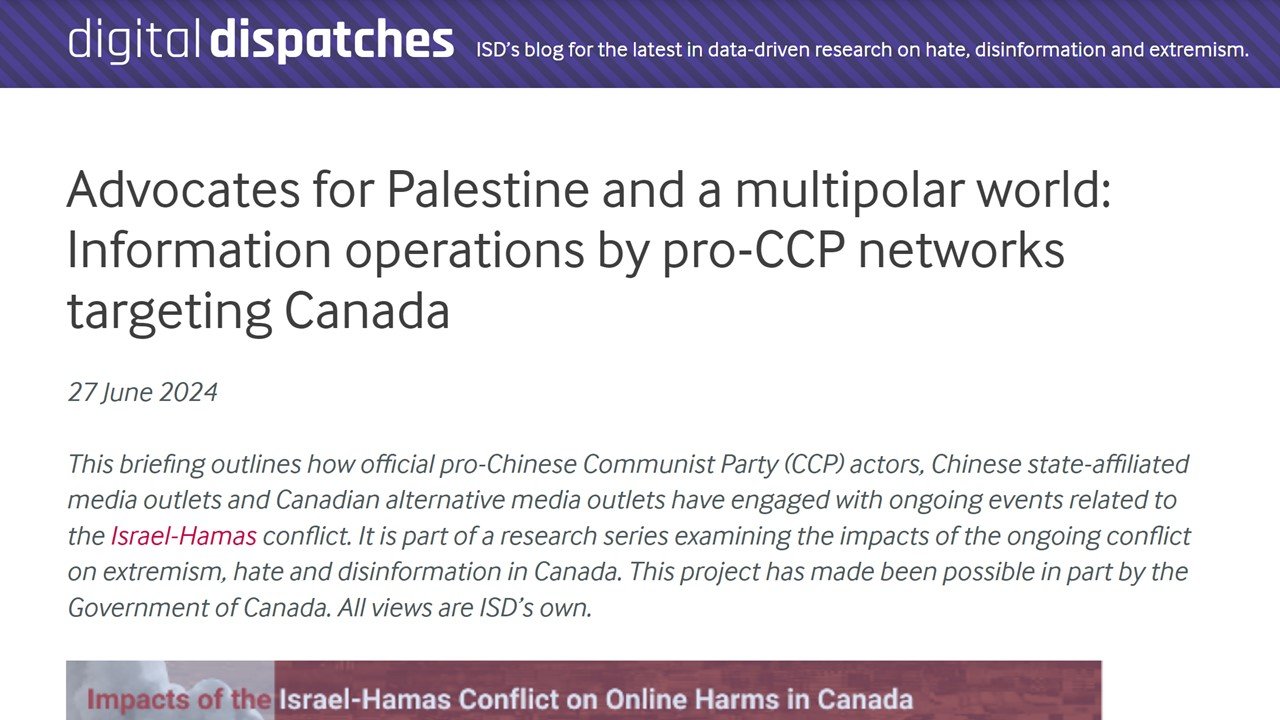
The Canadian government is spending money to attack rigorous journalists who partially dissent with Canadian foreign policy (e.g., Israel and Co's genocide) and to call them Chinese state-affiliated news outlets.
I already had strong suspicions the Canadian government was employing associations with China as pretext to disparage and censor dissenting ideas, people, and platforms. This is strong evidence.
I wish our government focused more on governing based on public wants and needs and less on covering up governance that goes against or that is morally bankrupt or corrupt
BC Conservative leader John Rustad was expelled from the BC Liberal Party in 2022 over controversial views on climate science
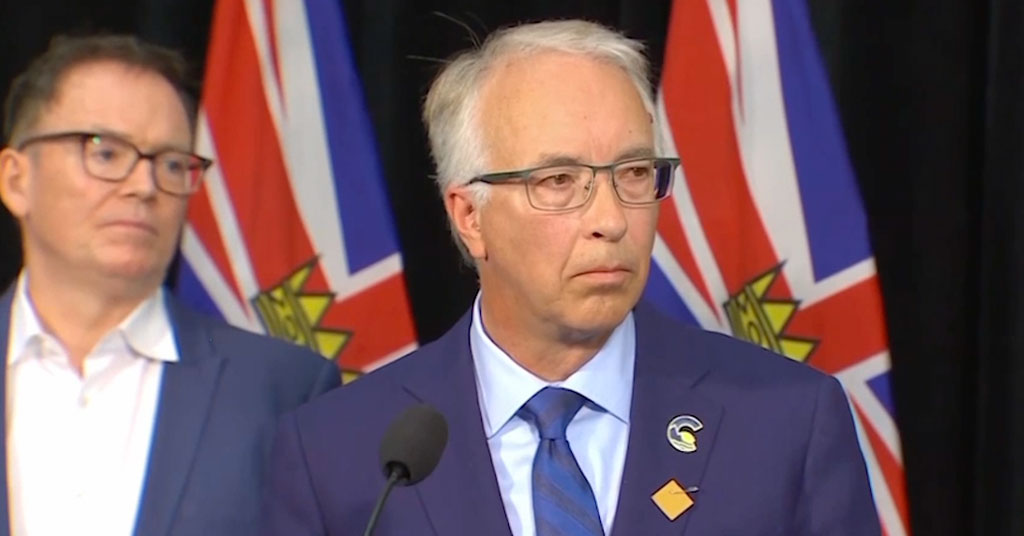
> The BC Conservative party’s official “climate policy” explicitly rejects the idea that climate change is a “crisis.”
> In August 2022, Rustad retweeted a tweet from prominent climate science denier Patrick Moore casting doubt on climate science.: “The case for CO2 being the control knob of global temperature gets weaker every day,” said the tweet amplified by Rustad, adding that people should “celebrate C02.”
Gas giant Enbridge is receiving millions of dollars of new federal funding to help build Canada’s hydrogen economy - a "slap in the face" for some.
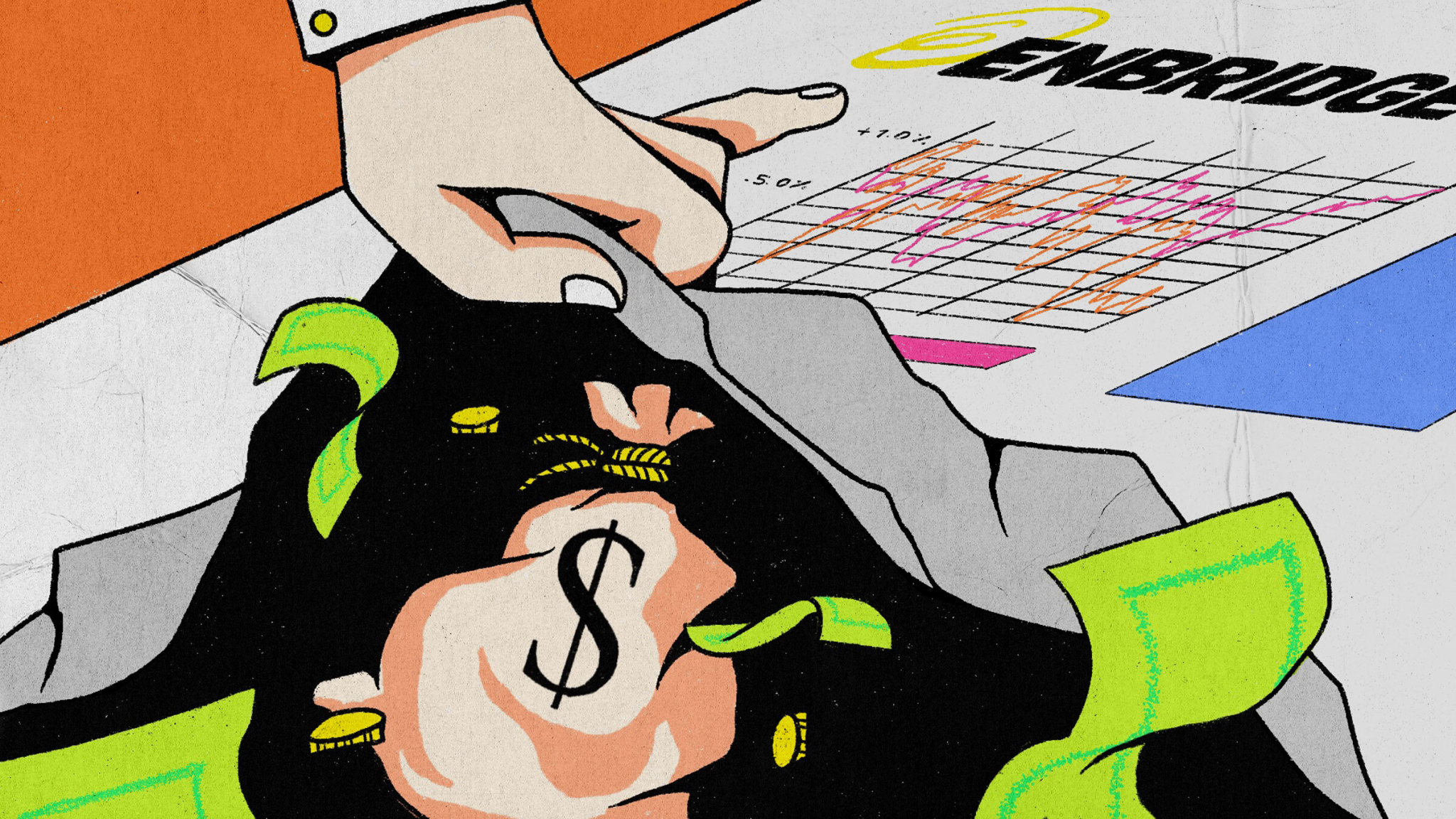
> Several million spread across a handful of projects may seem like small potatoes compared to other federal financing worth hundreds of millions, but Alex Cool-Fergus, Climate Action Network Canada’s national policy manager, is frustrated to see the federal government pump any money into the hydrogen sector. In an interview with Canada’s National Observer she called hydrogen an improbable “techno-fix” that has been effectively marketed by the fossil fuel industry.
> The possible end uses for hydrogen are dwindling, which is eroding its forecasted demand. To put in perspective just how significant this is, four years ago Natural Resources Canada expected the global market could be worth up to $11.7 trillion, but now says it could be worth up to $1.9 trillion — an 84 per cent drop.
> “It's disappointing to see that the federal government continues to invest in this false solution, and that disappointment is amplified by the fact that some of this money is going to massive companies that don't need any more money,” she said, calling it a “slap in the face.”
> “If [fossil fuel companies are] going to be investing in this at all, they should be using their own profits.” Last year, Enbridge posted $5.8 billion in profit and greenlit $10 billion worth of new projects.
One of 39 nations that pledged to end non-domestic support for fossil fuels at the COP26 climate change conference in 2021, Canada spent $6.75-billion less last year backing new sector projects, according to International Institute of Sustainable Development
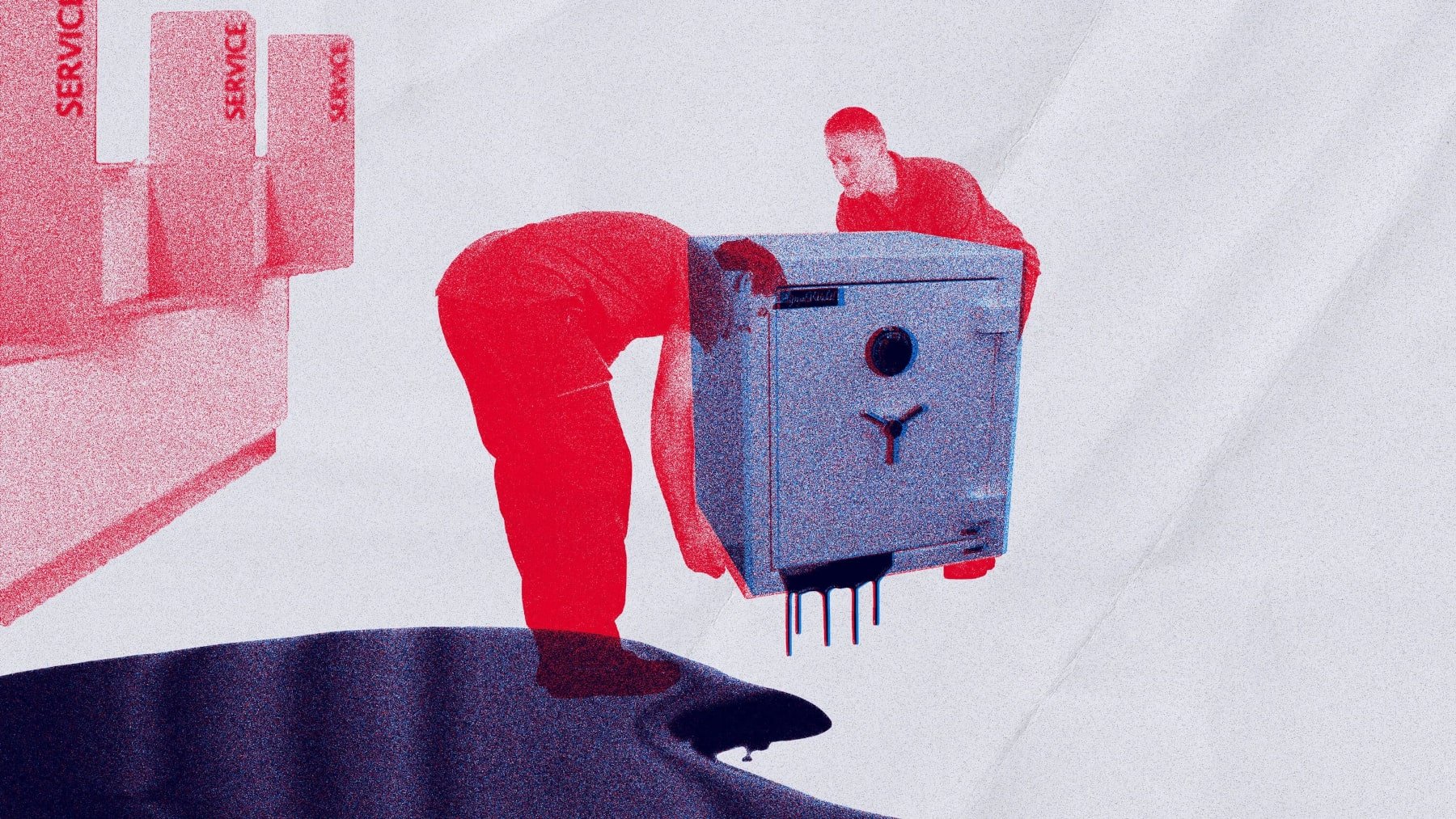
> Export Development Canada (EDC) and other national crown corporations have provided $7.6 to $13.5 billion a year between 2020 and 2022 to support the domestic fossil fuel industry, as compared with just $147 million for in-country renewable energy production, number-crunching by the IISD revealed in June.
> Canada was criticized in the new report for a “lack of transparency in reporting” that made it hard to ascertain whether finance was going to domestic or international markets. EDC data shows it has provided $88 billion to the oil and gas sector since 2016.
Jagmeet Singh and the NDP sit in the shadow of the Liberal Government, caught between criticizing those in power while also attempting to claim agency over bills being passed.
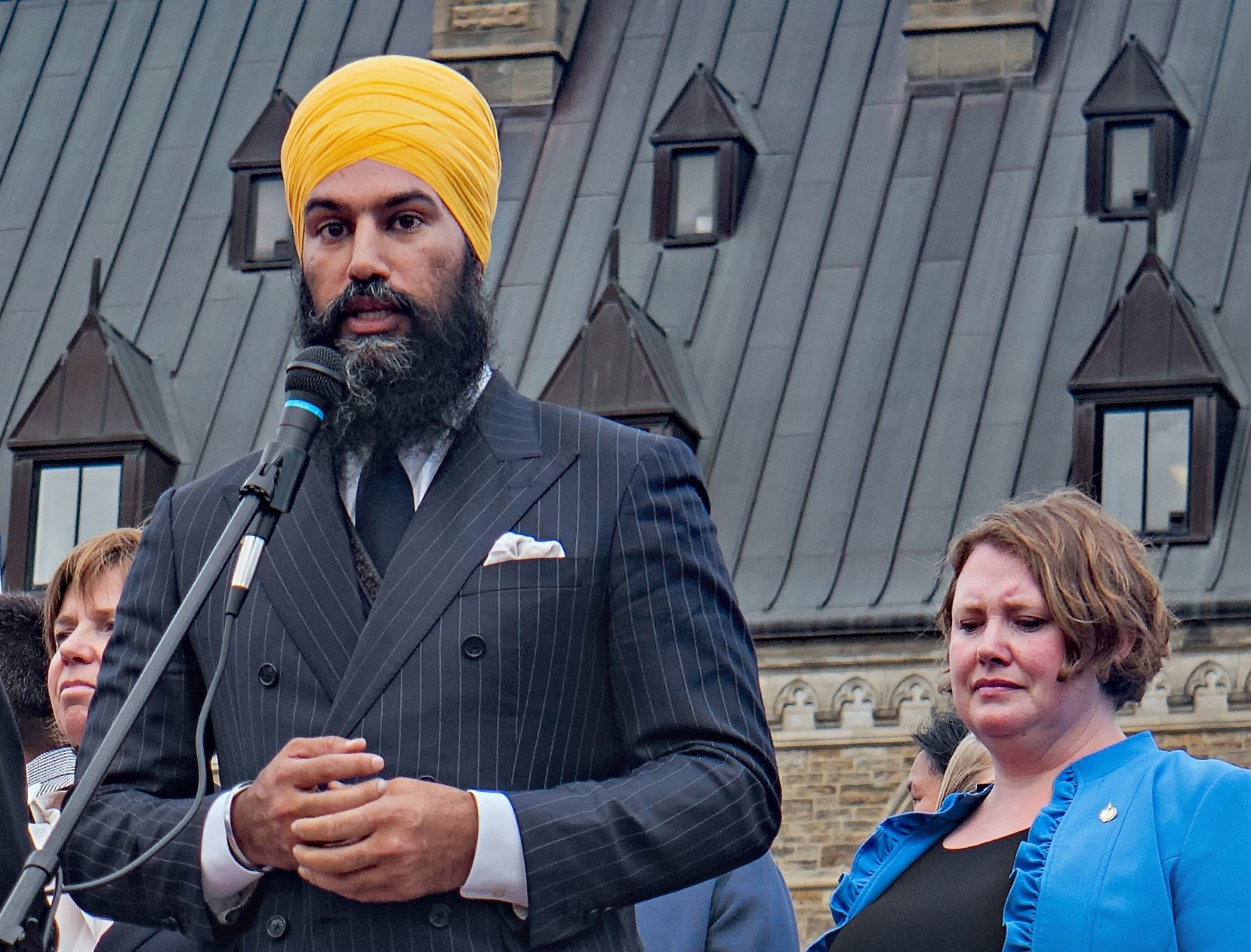
> Today, the NDP sits in the shadow of the Liberal government, caught between criticizing those in power while also attempting to claim agency over bills being passed. Most peculiar of all has been Singh’s retreat from online spaces. In 2023, he deactivated his TikTok account citing privacy concerns, but the shift in the tone of his content went beyond that.
> His once fresh, relatable, curtain-tearing content had been replaced by generic campaign videos of Singh reading scripts word-for-word that feel like they were copied directly from the platform section of the NDP website. It became boring, uninspired and — most importantly — ineffective. Polls now project a loss of seats for the NDP in the next election.
> One thing is for certain: we are closer to a Singh exit than we are from his arrival. Come October, he will have been party leader for seven years — he will certainly not be leader in seven years. So, has his choice to abandon his online roots damaged the future of his party?
> Whatever the future of the NDP holds and whoever its next leader will be, it is clear that it remains a party in desperate need of reimagination — the exact same issue that Singh was brought in to solve.
If plans to expand carbon capture technology are pursued, it will mean a network of hundreds, if not thousands, of kilometres of concentrated CO2 pipelines running under communities and Indigenous nations, demanding increased attention paid to these emerging risks.
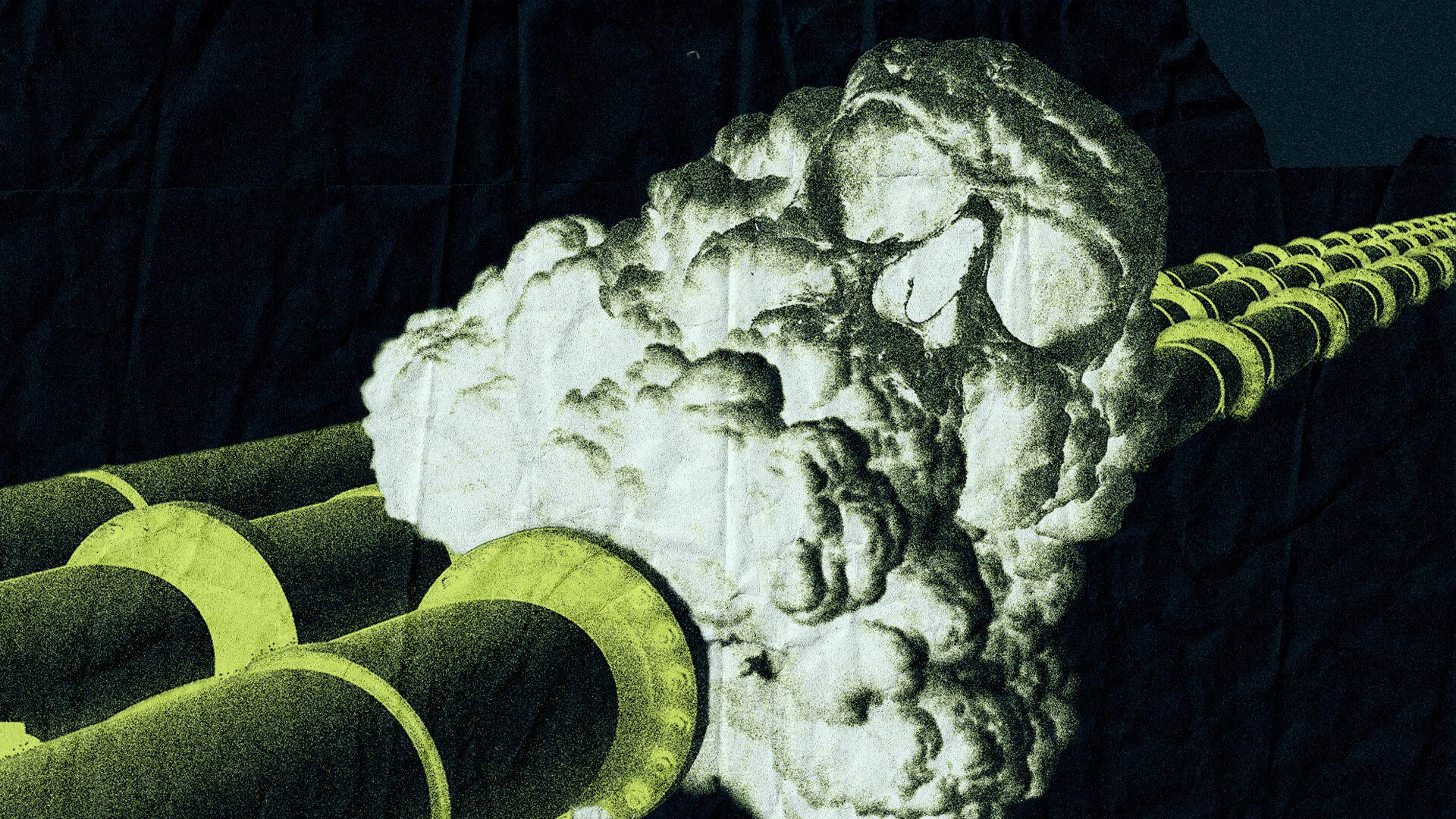
This is an aspect of the carbon capture greenwashing initiative I wasn't aware of. It will need another pipeline network that can be very costly to human and environmental health (and operated by an industry that our government is willfully blind to).
> Carbon capture is becoming a linchpin of Canada’s plan to reduce emissions from its oil and gas sector, but to pull this plan off would require massive investments in necessary infrastructure: pipelines, pressurization stations, equipping carbon capture to bitumen upgraders and more, all of which could fail. In a carbon management strategy, released in 2023, the federal government says to support the country’s emission reduction efforts, carbon capture capacity must grow 270 per cent from current levels by 2030, with “significant further scaling required” to reach net-zero by 2050.
> when carbon dioxide pipelines fail, they can fail catastrophically.
> According to data from the U.S. Department of Transportation, there have been at least 76 reported safety incidents related to CO2 pipelines since 2010 in the United States. Some incidents are minor and others are disastrous, but all point to the risks of transporting and storing carbon dioxide as a way to manage greenhouse gas emissions.
> Dodging a full assessment
> By far the largest project would be the Pathways Alliance’s $16.5-billion flagship carbon capture project, which would include a carbon dioxide pipeline stretching 400 kilometres from the oilsands in northern Alberta to a storage hub about 300 kilometres east of Edmonton.
> The Pathways Alliance is splitting its megaproject into 126 smaller segments, with multiple applications for various licences with the AER. As previously reported by Canada’s National Observer, that means the project won’t be subject to a full environmental assessment that examines what the impact of the project in its entirety would be. “The impacts are never being articulated to the public, and that includes impacts on the environment, the climate and Indigenous rights,” said Matt Hulse, a lawyer with Ecojustice collaborating with the Athabasca Chipewyan First Nation to call for an impact assessment.
Years after Ontario's premier promised 1.5 million net new homes by 2030, his government's own NIMBY zoning, outdated construction rules and subsidies for inefficient sprawl development have prevented both market and non-market builders from making shifts to more labour-efficient building formats an...

> So why, years after the Premier promised legal reforms that would deliver “more homes faster” and 1.5 million net new homes by 2030, is the housing shortage even worse? Why are housing starts actually down, year over year? It’s because rather than ending restrictions on midrise housing and slamming the brakes on sprawl and highway schemes that squander construction, Ontario’s changes to land use planning, environmental and transportation laws and policies have done the opposite.
> Soon after Premier Doug Ford took office, his government began to dismantle even the modest measures the previous government had taken to promote more efficient housing construction.
> Despite calls from housing and environmental experts across the political spectrum — and its own housing task force — to scrap outdated rules such as minimum parking requirements and to permit mid-rise housing on major streets throughout existing residential neighbourhoods, Ford intervened. He personally blocked efforts to legalize even 4-storey “4-plex” apartment buildings.
> In recent months, as his government’s failure on housing has become more obvious, Ford has tried to pass the buck by blaming everyone from immigrants to the Bank of Canada. What he glosses over is that the housing market could easily have adapted to population and rate changes, but has instead turned the challenge of high interest rates and the opportunity of a growing population into a housing crisis by willfully sabotaging the solutions.
> It’s generally fair to wait for a policy to unfold, to leave some time to judge its effects, before we decide whether it will succeed or fail. The Ford government has done its critics a favour this week, however, with its announced changes to drug policy in Ontario, shutting more than half of the province’s safe consumption sites. The logic adopted by the government and its defenders is that because the province’s overall high rate of opioid deaths has continued, these safe consumption sites are a failure. This is despite the fact that no patient has died of an overdose at these sites precisely because they’ve been monitored and treated.
> The bad news for the government, and the good news for its critics, is that if the benchmark for success is "reducing the rate of opioid overdose deaths in Ontario” then nothing announced this week will succeed. That’s not because an emphasis on treatment over harm reduction is itself indefensible. It’s because the scale of the problem that Ontario faces is so far beyond the resources that have so far been committed, and because addiction itself is such a wicked problem for health policy.
> For nearly a century, the Beer Store has, in one form or another, operated arguably the best-performing recycling program in the province of Ontario. Its deposit-return system — which sees consumers get refunds of 10 or 20 cents per container returned to the stores — boasts a return rate of nearly 80 per cent overall, and for some specific types of containers, the number is higher still: 89 per cent of glass bottles were returned in 2022, according to the most recent environmental-stewardship report on the Beer Store’s website.
> The success of the deposit-return scheme, which has been expanded to include wine bottles and other alcohol-beverage containers, stands in stark contrast to the middling diversion rates achieved by the blue-box program operated by many municipalities. The city of Toronto, for example, achieved an overall diversion rate of just 53.6 per cent in residential collection, and even single-family homes (which perform better than the city’s older apartment buildings) rate only 63.9 per cent. The numbers provincewide aren’t any better overall, and a report from the province’s Resource Productivity and Recovery Authority suggests Ontario’s diversion rates have actually fallen over the past decade.
> So the closure of Beer Store locations in small northern communities poses a problem that, at least in some cases, is going to fall on the property-tax bill of local homeowners.
> “As a municipality, we now are going to be stuck having to pick up everyone’s empties, and it’s going to impact our landfill space. It’s going to end up in the pile at the front of everyone’s driveway on garbage day,” McPherson says. “We are in the process right now of applying for an environmental assessment for new waste management because the Geraldton landfill is full. This is absolutely the wrong time for us to have excess material going into the landfill.”
> Greenstone isn’t alone: Beer Store locations in Nipigon and Cochrane are also reportedly closing in September. In at least some cases, the Beer Store’s former customers will still be able to get beer at an LCBO or a new outlet such as a corner store or gas station — but locals will have nowhere to return empties.
> New research finds that access to the surgery has increased since an Ontario government funding change — “but only for one group”
> A new study adds weight to such suspicions. Analyzing six years of patient data, it has found that a disproportionate number of surgeries performed by private clinics since the province’s new funding allocation have gone to the wealthiest Ontarians.
> “You can’t actually charge patients for cataract surgery, because of OHIP,” says Campbell. “But [these clinics] would have OHIP pay for the cataract surgeries and charge patients for other services in a way that would cover their costs and left a profit.”
> “What we did is divide people into five different strata by socioeconomic status and compare their rates of surgery before and after this policy change,” Campbell says. “To put it bluntly, access did go up, but only for one group — and that was the group that could afford to pay extra.” In fact, the team found that surgeries for those in the highest socioeconomic strata went up by nearly 25 per cent in private clinics. For those in the lowest, however, they fell by 8.5 per cent.
> While it is difficult to say what precisely is driving this change, Campbell says it likely comes down to two major factors. “The first is the continued request for payment from patients who are seeking care in private centres … The second is these clinics keeping separate wait-lists for people who are willing to pay extra versus those who aren’t,” he says. “That allows them to sell, essentially, the ability to jump the line. Extra lenses and whatnot might have some value to them, but the real value is in jumping what is perceived as a really long queue.”
> “The whole thing was equal parts unnerving and a miracle,” he says. “The most terrifying thing was seeing them interacting with 80-year-olds who were confused, worried, and just wanted their vision back so they could see their grandkids. These people were accepting those fees left and right.”

#ALTtext: A screenshot capture shows the cookies settings popup window of a current website. The first sentence of the popup starts: "We and our 843 partners store and access personal data..." The screenshot is annotated. "843 partners" is highlighted with "Is that all?" written beside it
A top Kroger executive admitted under questioning from a Federal Trade Commission attorney on Tuesday that the grocery chain raised its egg and milk prices above the rate of inflation.
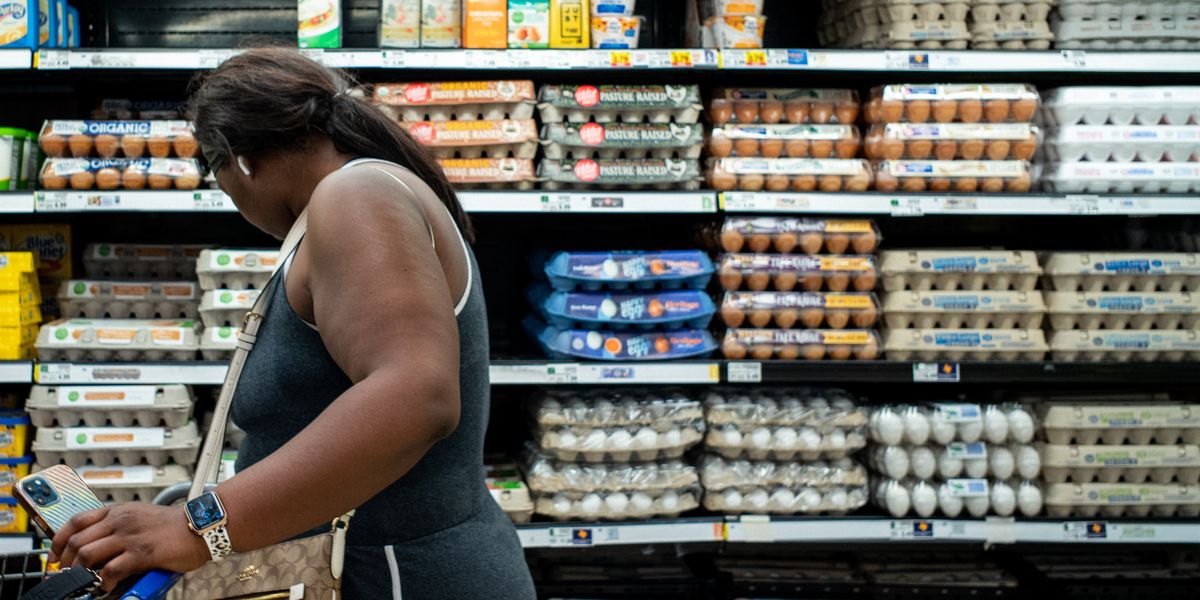
> A top Kroger executive admitted under questioning from a Federal Trade Commission attorney on Tuesday that the grocery chain raised its egg and milk prices above the rate of inflation, a concession that came as no surprise to economists who have been highlighting corporate price gouging across the U.S. economy in recent years.
> The U.S. grocery sector—dominated by Kroger, Walmart, and a handful of other major companies—profited hugely during the Covid-19 pandemic as corporate giants exploited supply chain disruptions to aggressively jack up prices.
> "The grocery industry, as represented by four of its largest players, became more profitable in the pandemic, and it has stayed that way for a couple of years at least," The Financial Timesnoted Monday. "It is a good guess that price increases in excess of cost increases have played a role in this."
